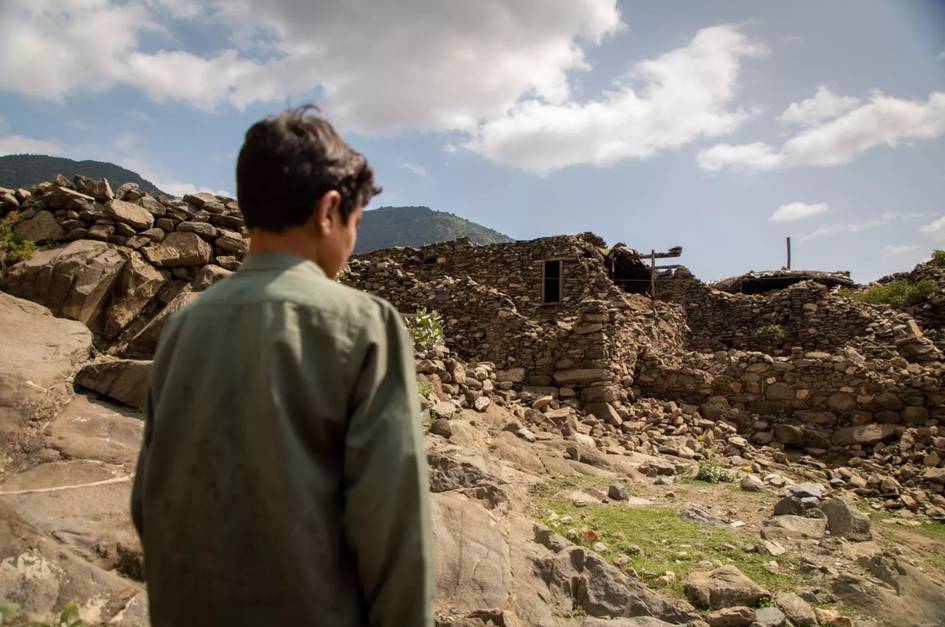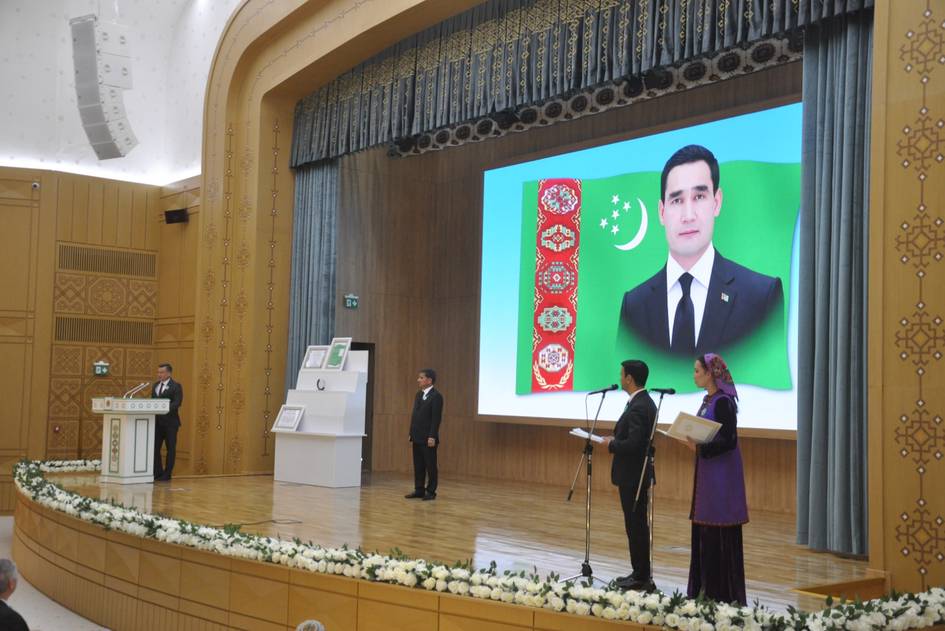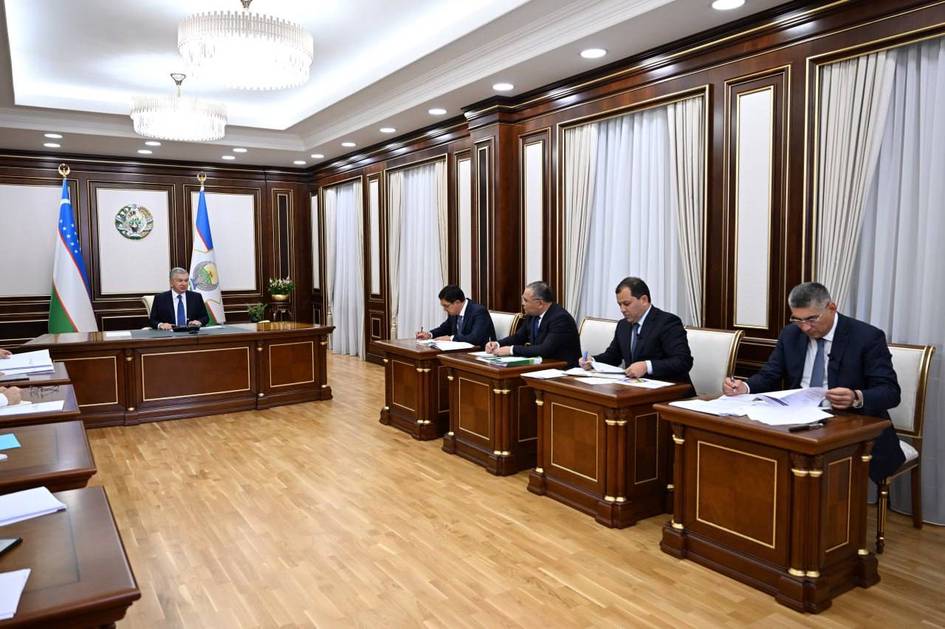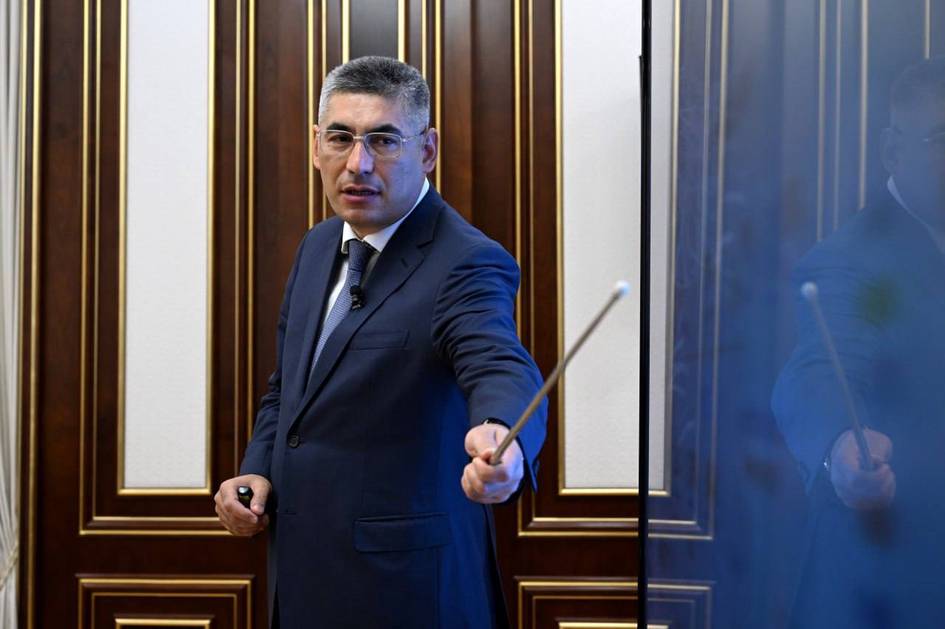
UNICEF warns of urgent needs for children after earthquake in eastern Afghanistan
“In times like these, it is children who suffer first and suffer most,” UNICEF said.

Support from UNICEF and its partners includes deploying mobile health and nutrition teams to treat the injured and screen children for malnutrition. Thousands of cartons of essential nutrition supplies, including ready-to-use therapeutic food, have been dispatched. UNICEF is also distributing water purification tablets and hundreds of family hygiene kits to affected communities.
“Children have suffered the most in this disaster. We are doing everything possible to save lives and protect children, but urgent help is needed today,” a UNICEF spokesperson voiced.

Turkmenistan's State Energy Institute opens new green facilities with UNDP and GEF support


Kazakhstan partners with China to build 300 MW solar power plant
"Today's signing is a practical result of our joint work and a symbol of deepening strategic partnership with China in the field of green energy. This project will strengthen our energy system, create new jobs, and will be an important step towards achieving carbon neutrality goals," Akkenzhenov said.

Uzbekistan moves to regulate car prices

Uzbekistan to reduce value-added tax on agricultural products
Over the past few years, the country has introduced structural reforms to increase efficiency in agriculture. Cotton and grain areas were reduced to make room for food production, while 160,000 hectares of new orchards and vineyards were established. In addition, 1,500 food projects worth $1bn have been launched.


According to government estimates, this reform will leave UZS 300bn ($24.2mn) in the hands of farmers annually, while also enabling them to reclaim another UZS 400bn ($32.3mn) in taxes.

Beeline Uzbekistan started 2025 with a significant network modernization

Uzbekistan moves to regulate car prices

Uzbekistan to reduce value-added tax on agricultural products

More than 500,000 new users: residents of Uzbekistan choose the Hambi superapp
Uzbekistan

Uzbekistan moves to regulate car prices
Uzbekistan is preparing new steps to regulate car prices and streamline vehicle import rules, with proposals set to be submitted to the Presidential Administration.

Uzbekistan to reduce value-added tax on agricultural products

Uzbekistan, China sign agreement to establish cultural centers

Drones map 96% of Uzbekistan's land to support digital land management

Sugar production in Uzbekistan falls sharply
25 000 so‘m / per month
Buy subscription
World

Iran as the pressure point: How Washington’s campaign against Tehran seeks to undercut China and Russia - and why Central Asia risks the fallout

Russia to write off $300mn Tajikistan electricity debt

Central Asia–China Summit yields new agreements on trade, connectivity, and culture

Taliban cancels 25-year Amu Darya oil deal with Chinese firm over contract breaches

Uzbekistan could be affected by radiation from Iran in certain weather conditions, expert says
Climate scientist Erkin Abdulahatov has warned that a radioactive incident at Iran’s nuclear facilities could affect Uzbekistan under certain summer weather conditions, though current radiation levels remain within normal limits.
Daryo+

"The young man, feeling the breath of death, knelt down and kissed the shoes of the executioners" - the harrowing story of witnesses to the civil war in Tajikistan
The 1990s were a challenging and turbulent period for the countries of the former Soviet Union. The collapse of the “Red Empire” triggered severe ethnic, religious, and political conflicts in several nations. Newly independent states such as Tajikistan, Georgia, Moldova, Azerbaijan, and Armenia found themselves engulfed in civil wars and armed conflicts. “Daryo” presents the stories of individuals who witnessed and endured the atrocities of the Tajik civil war (1992–1997), a conflict that claimed thousands of lives.

From Ruble zone to global fintech leader: Kazakhstan’s financial revolution in focus

Trump’s foreign policy in Central Asia: balancing acts amid rising influence from China and Russia

The implication of Israel-Iran War for Central Asia

India’s Chabahar Port investment: navigating Eurasian trade through geopolitical tensions
Live
Latest News
UNICEF warns of urgent needs for children after earthquake in eastern Afghanistan
Turkmenistan's State Energy Institute opens new green facilities with UNDP and GEF support
Kazakhstan partners with China to build 300 MW solar power plant
Uzbekistan moves to regulate car prices
Uzbekistan to reduce value-added tax on agricultural products
Recommendations
Lifestyle and Culture

Chinese woman offers apartment in Shanghai as reward to whoever finds her son who was lost 26 years ago

Imam Al-Bukhari and Sukarno: A cross-cultural journey supported by global philanthropy
Imam Al-Bukhari and Sukarno, a theatrical-musical production celebrating the shared cultural heritage of Indonesia and Uzbekistan, had its world premiere in Samarkand in November 2024. Featuring over 60 performers, the play brings to life the journey of Indonesia’s first president, Sukarno, to Uzbekistan in 1956. "This project represents a cultural dialogue," says Restu Imansari Kusumaningrum, the play's Artistic Director. "The arts need to be supported, not just by the government, but by the community—by private donors and philanthropists. Without them, many of these stories would remain untold." With a production cost of over $100,000, the production showcases the crucial role of private sector support in making such cultural initiatives a reality.
Sport

Uzbekistan joins Asian Cricket Council, strengthening regional ties

Uzbekistan to introduce three-stage youth sports championship with Presidential Olympics final

Uzbekistan and Azerbaijan aim to host FIFA U-20 World Cup 2027 with joint bid

Uzbekistan’s president reviews proposals to prepare for 2028 Olympic and Paralympic games

Manchester City owner sets sights on Uzbekistan’s football future
Videos

Uzbekistan's Military Power in Numbers

ICJ examines genocide accusations in Gaza conflict, over 23,000 lives lost

Uzbekistan's WTO Accession Working Party Meeting | November 2023

Uzbekinvest IPO Roadshow | 28 November 2023

President Shavkat Mirziyoyev urges #humanitarianaid to #Afghanistan at the #OTSSummit
Money
Show business

Uzbek Deputy Minister's criticism sparks controversy over X-Factor show
Renowned singer Shuhrat Daryo echoed the deputy minister's sentiments, expressing his disappointment for Uzbek art and the nation as a whole after watching the show.
Burt Young, Oscar-nominated 'Rocky' star, passes away at 83
Former NFL star Michael Oher wins conservatorship battle against 'The Blind Side' inspirers, Tuohys
Irish actor Sir Michael Gambon passes away at 82, leaving profound void in entertainment
Good news:
Tags
Grow your business with us
Advertise on Daryo.uzIndividual approach and exclusive materials
Ad-free site readingSubscribe
25 000 sum per month



